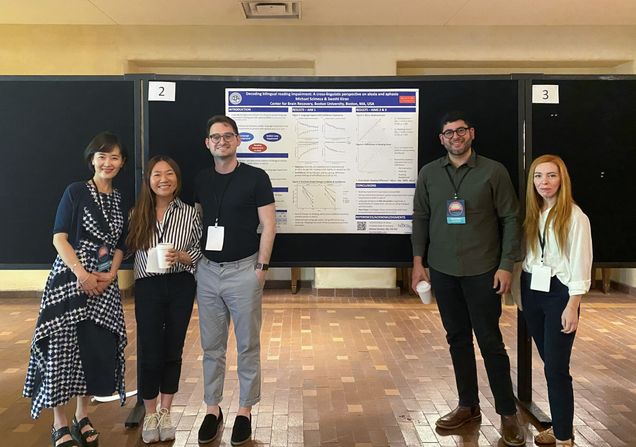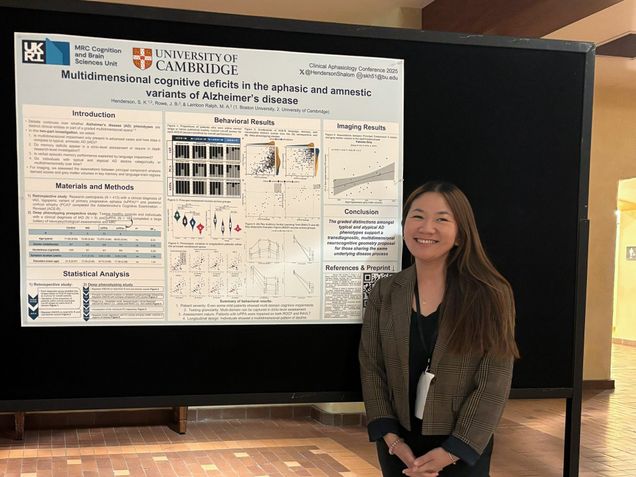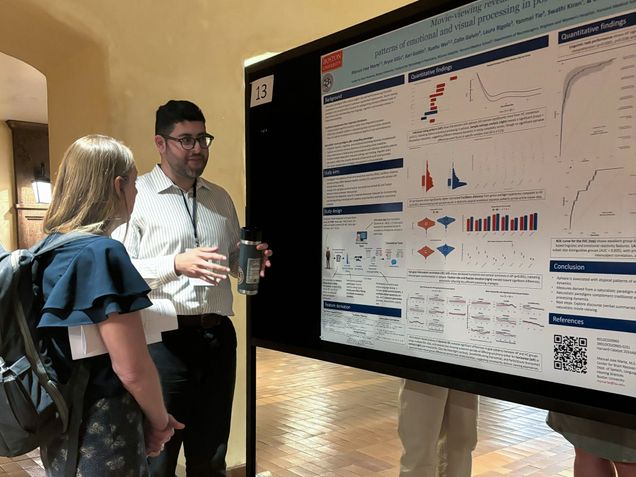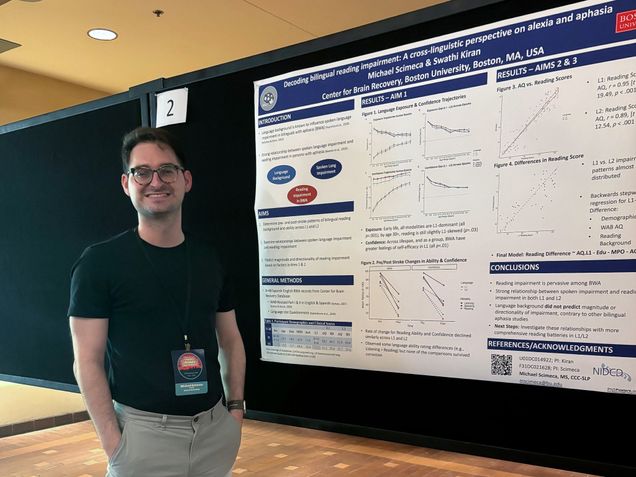CBR Researchers Present at the Clinical Aphasiology Conference 2025
This past May, four researchers from the BU Center for Brain Recovery attended and presented at the 2025 Clinical Aphasiology Conference in Albuquerque, New Mexico.
At the conference, CBR Assistant Scientific Director, Maria Varkanitsa, presented the research “Theory of mind deficits in people with post-stroke aphasia: Prevalence and links to aphasia severity and brain health” in a 30 minute platform session for conference attendees.
To learn more about the research she presented, read our article, “Theory of Mind Deficits in People with Post-Stroke Aphasia”.
Additionally, three CBR researchers presented the following posters at the conference.
Shalom Henderson, Postdoctoral Associate
“Multidimensional cognitive deficits in the aphasic and amnestic variants of Alzheimer’s disease”
Shalom Henderson1, James Rowe2, Matthew Lambon3
There is ongoing debate about whether Alzheimer’s disease (AD) phenotypes are distinct entities or represent positions within a graded multidimensional space. The severity of patients, granularity of testing, nature of the assessment, and differences in cross-sectional versus longitudinal study design make it difficult to draw definitive conclusions between the two hypotheses. In our two-part investigation, we examined the comparative distributions of cognitive performance in patients diagnosed with typical AD, logopenic variant of primary progressive aphasia (lvPPA), and posterior cortical atrophy (n = 413) and conducted a deep phenotype study of lvPPA compared with typical AD (n = 27).
Manuel Marte, PhD Candidate
“Movie-viewing reveals novel patterns of emotional and visual processing in post-stroke aphasia”
Manuel Marte1
This study investigated naturalistic processing during movie-watching in 35 persons with chronic poststroke aphasia (PWA) and 50 healthy controls (HC) using continuous emotional valence ratings, eyetracking, and movie-specific language tasks. PWA showed distinct patterns of emotional reactivity and visual attention during movie-watching. The complexity of moment-to-moment emotional ratings decreased with increasing aphasia severity. Indices derived from the movie-watching paradigm alone robustly differentiated PWA from controls, suggesting that movie-viewing paradigms may enhance our understanding of real-world communication challenges in aphasia.
Michael Scimeca, PhD Candidate
“Decoding bilingual reading impairment: A cross-linguistic perspective on alexia and aphasia”
Michael Scimeca1 & Swathi Kiran1
Reading impairment remains understudied in bilingual aphasia, with limited evidence-based resources for evaluating alexia in Spanish-English bilinguals with aphasia (BWA). This study investigated the relationships between pre- and post-stroke reading abilities and the potential role of language background in predicting post-stroke reading impairment. Results revealed pervasive declines in reading ability post-stroke with the magnitude of impairment linked to spoken language performance. Demographic factors, but not language background, predicted impairment patterns. Findings highlight the need for comprehensive reading assessments to explore cross-linguistic patterns in bilingual alexia.
1Boston University 2University of Cambridge 3Ralph University of Cambridge



